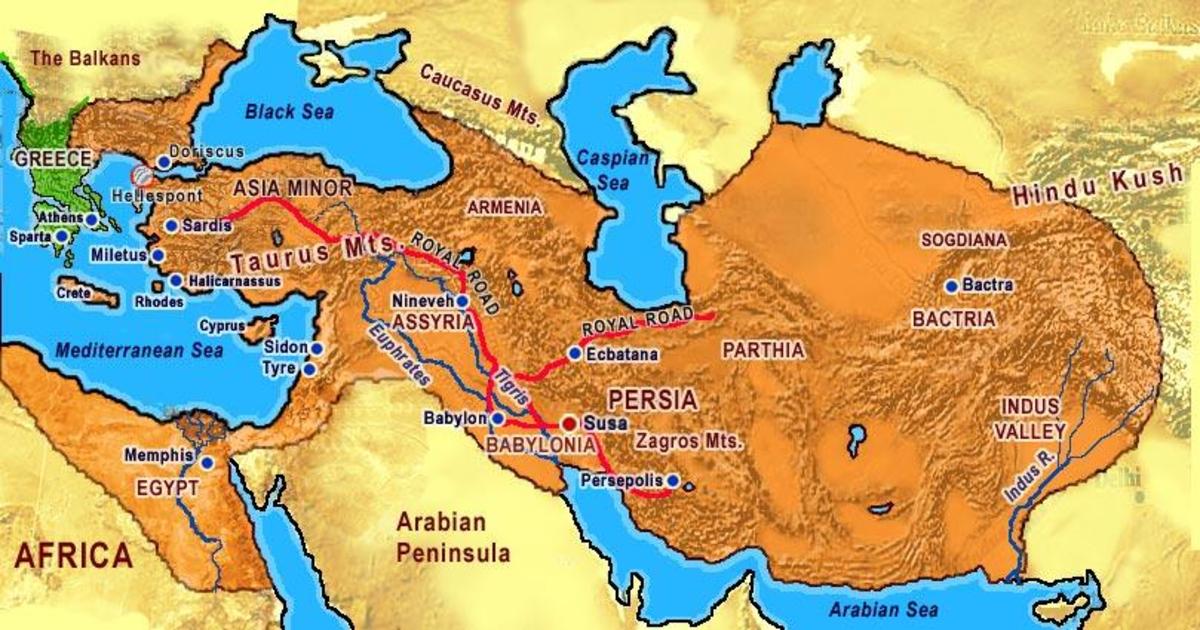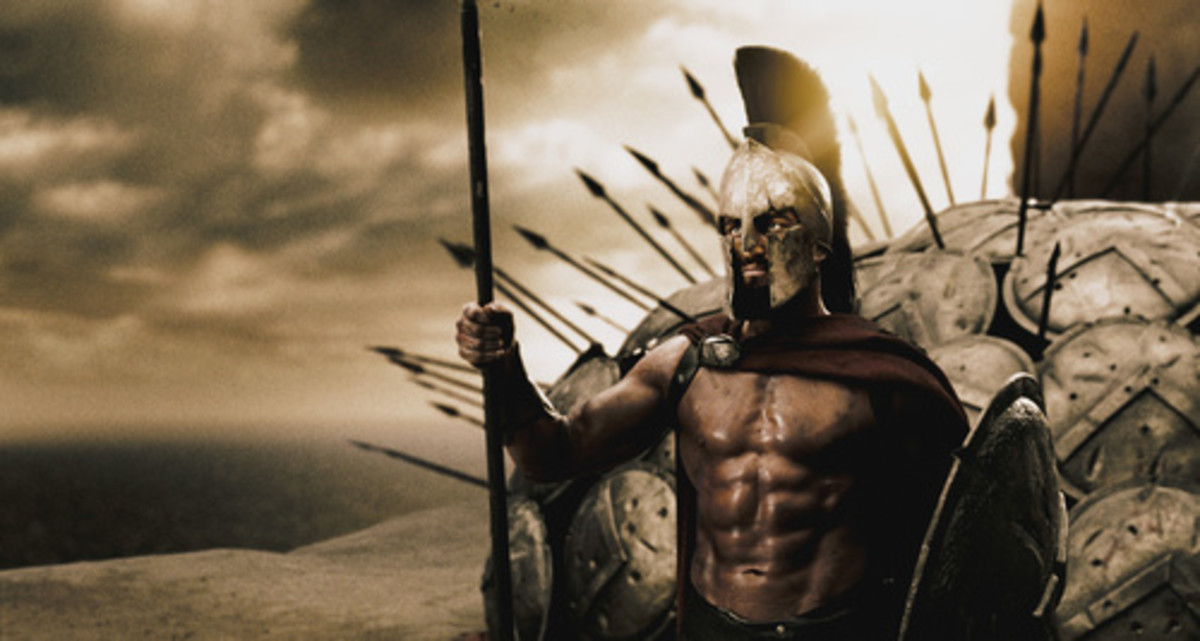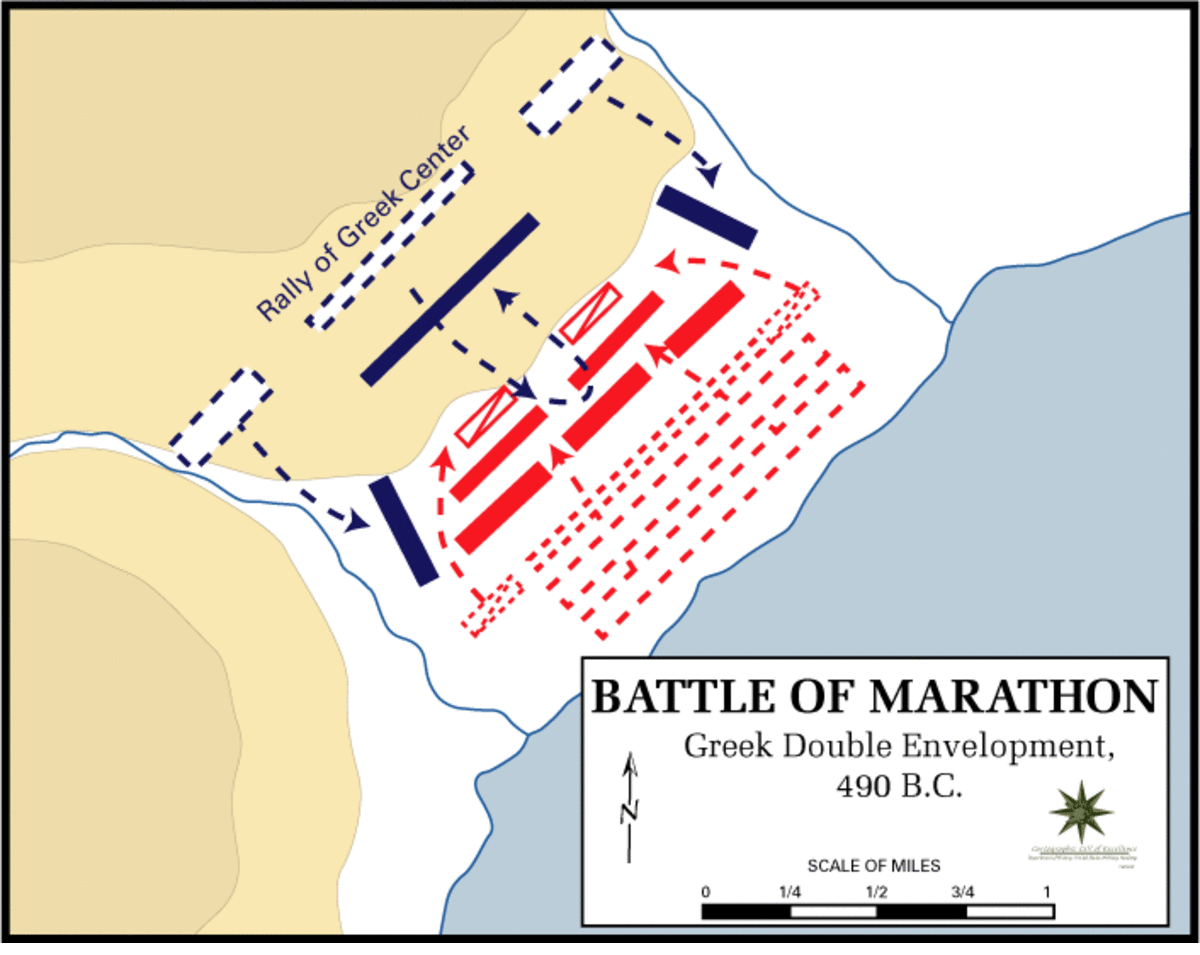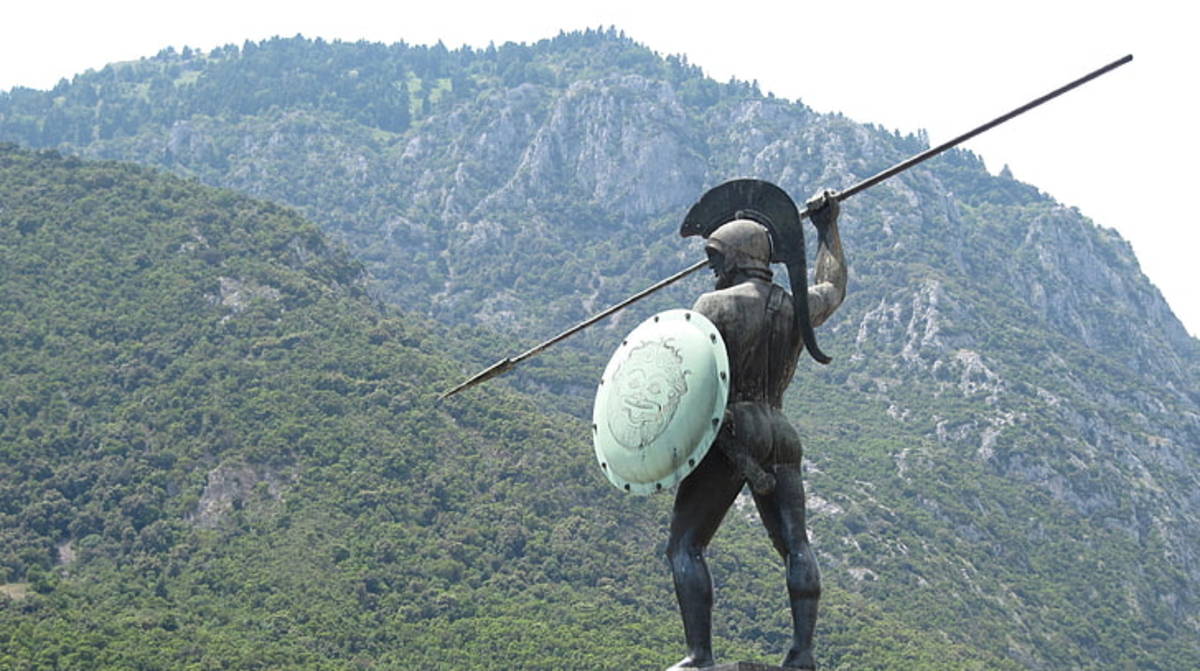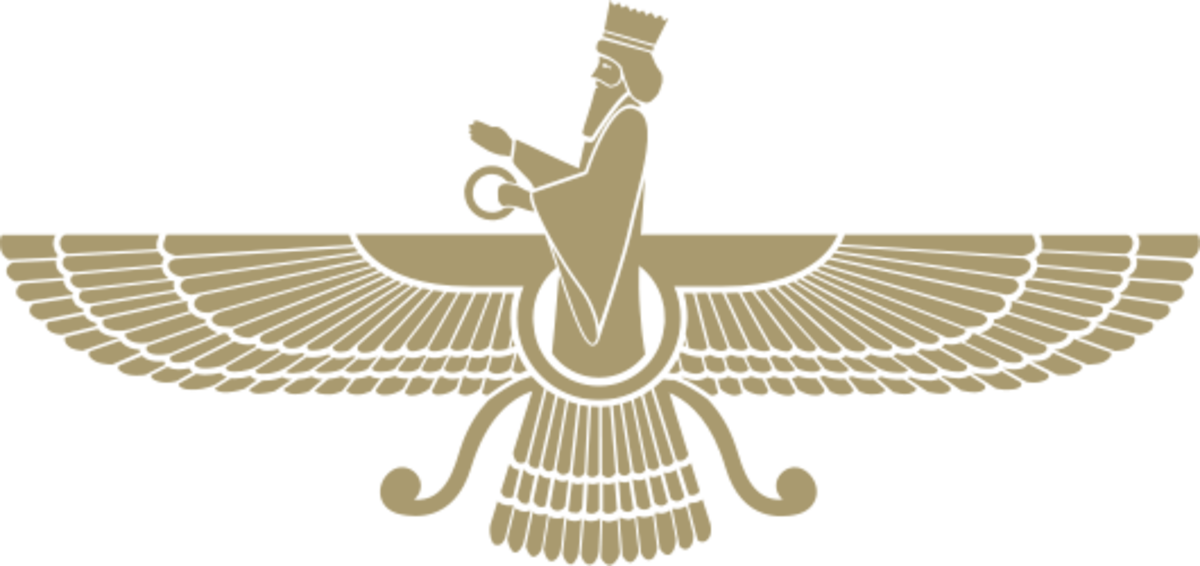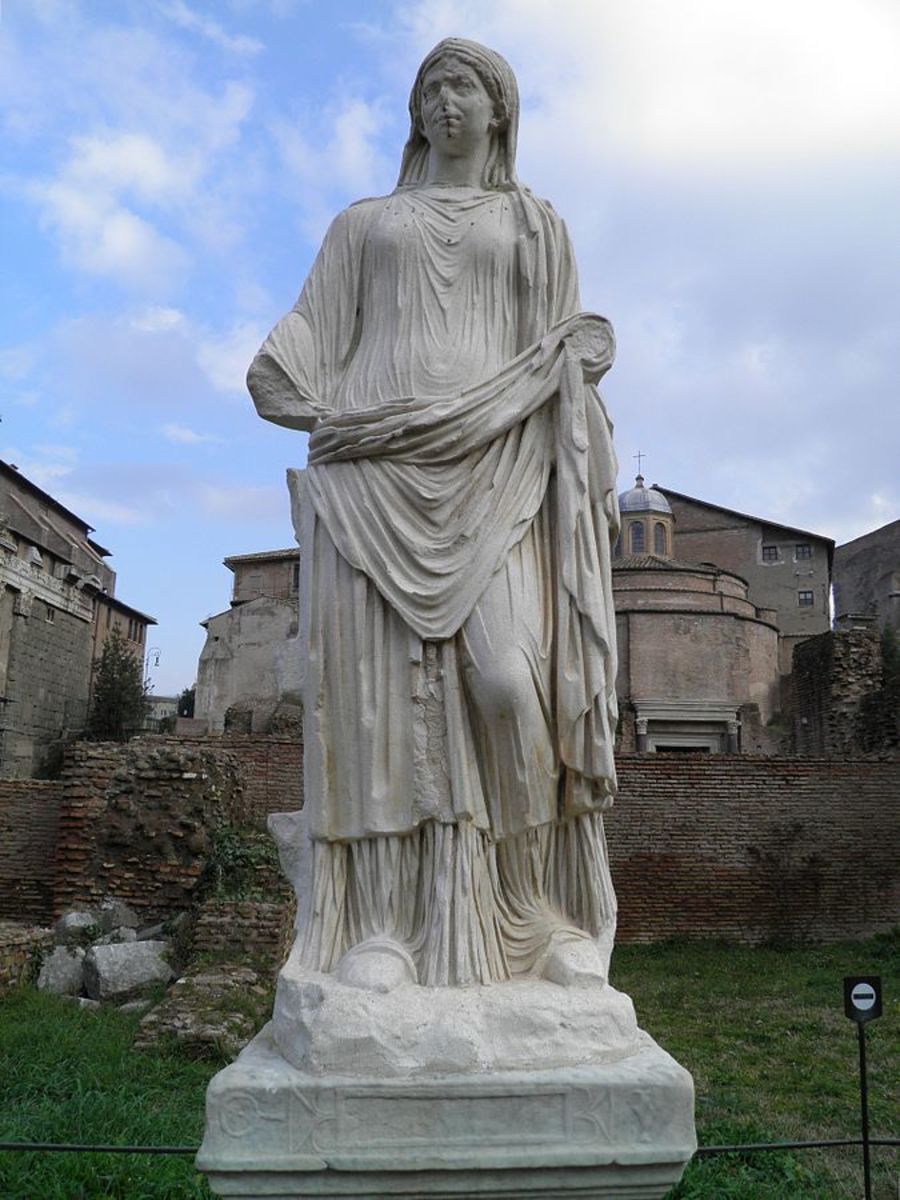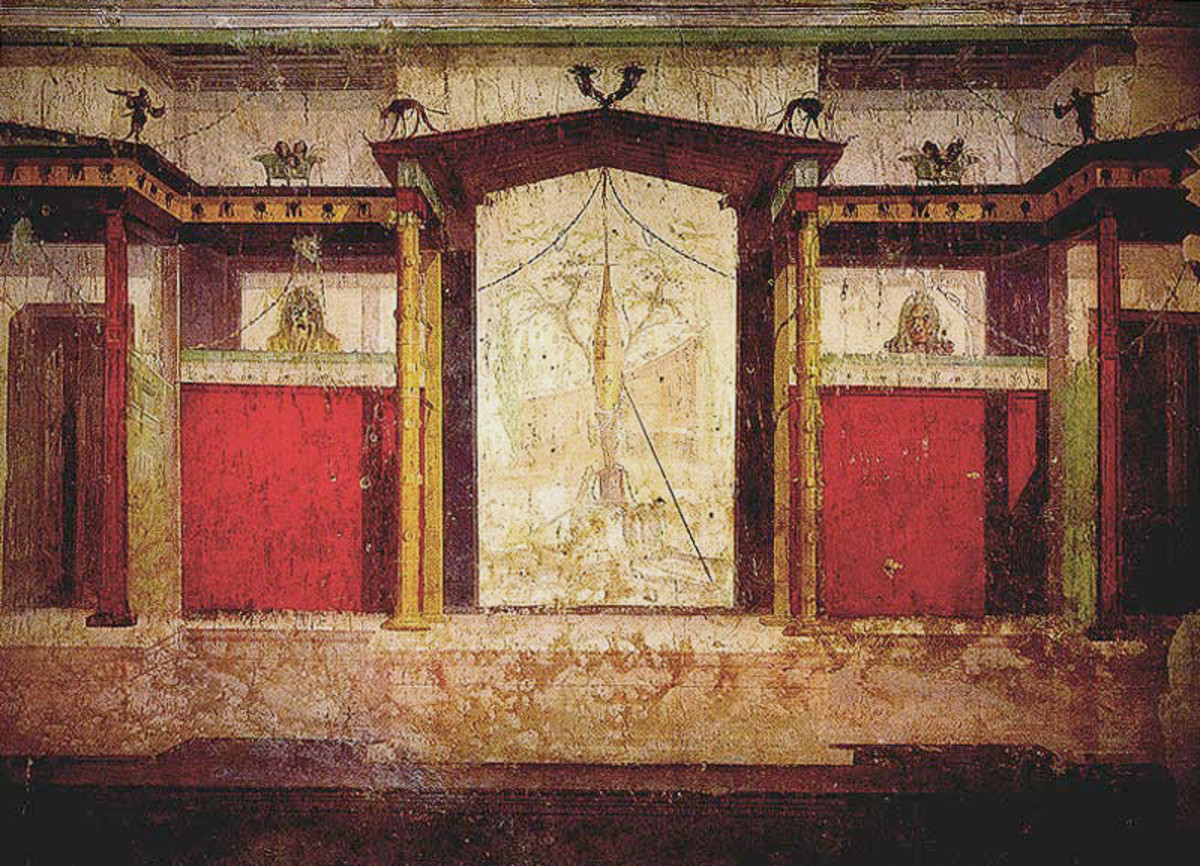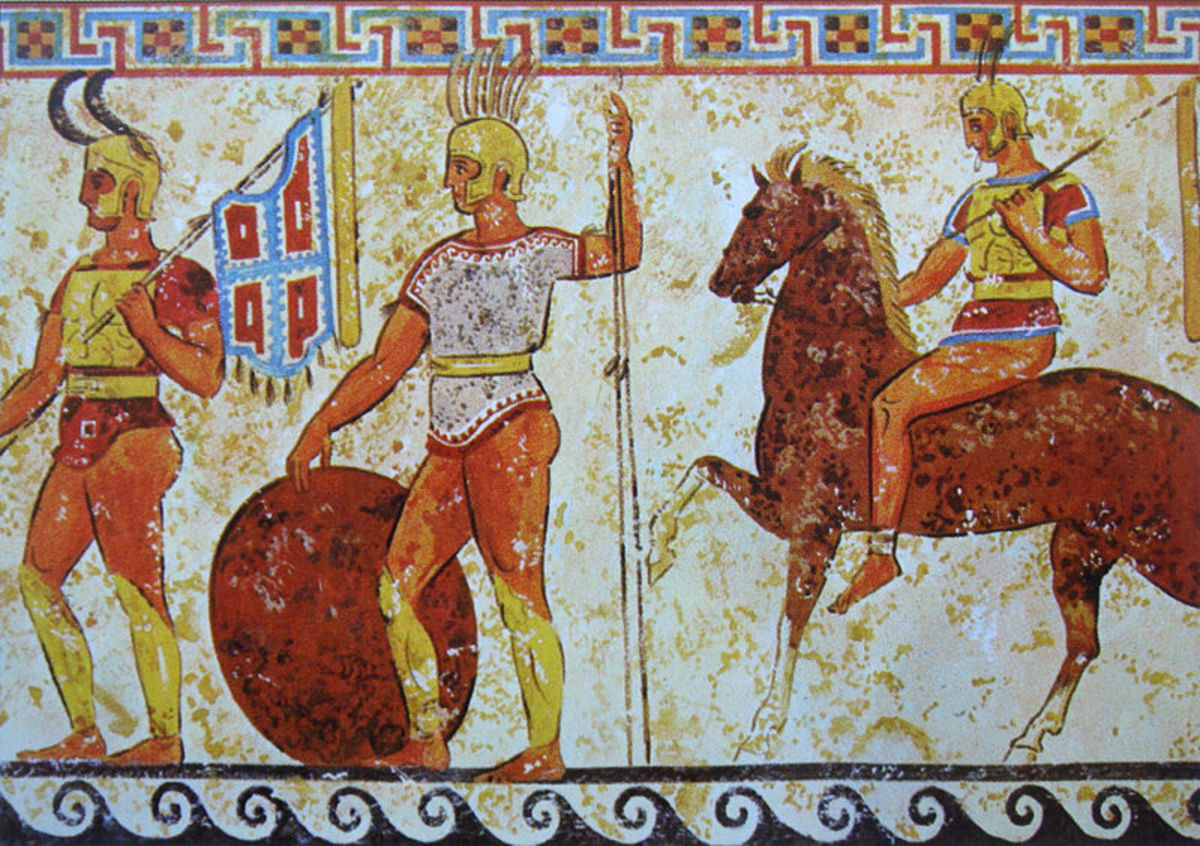The Battle of Thermopylae
In 480 BC, nestled in the small pass of Thermopylae in northern Greece waits 7,000 Greek warriors, ready to take on the largest army ever assembled in the ancient world- the vast Persian army of 300,000 soldiers. Leading the Greeks is King Leonidas and 300 Spartan warriors, hand picked by Leonidas himself. The Spartans at Thermopylae will be forever remembered for their courage and skill, for none of them will leave the pass alive. The battle of Thermopylae is essential to the fate of democracy and the development of western civilization. The events of which took place here are incredibly controversial and debated among historians often. Questions like how many Persians were there? What was the catalyst for the fall of the strong Greek defense? And, are the historical accounts of the battle accurate? Though through shear research, and a detailed description of all aspects of the battle, one can quickly start to eliminate much of the speculation.
Leading the Persians is King Xerxes. Xerxes has control over the most powerful army ever assembled at the time. His army has been estimated at 300,000 strong, though some believe the number to be as high as 2 million (Reed College). A fleet of 1,000 war ships escorts the grand Persian army. The Persians borders went from the Indus River in India, all the way to the Nile River in Egypt. It was the largest Empire at the time and was extremely wealthy. However, the Persians were not in Greece to merely expand their vast empire. Xerxes had a more personal agenda. He was seeking out revenge on the Greek city-state of Athens for the part they played in a revolt against the Persian Empire that occurred in 499 BC.
In 549 BC, the king of Persia was King Cyrus the Great. Cyrus expanded the Persian borders from India to Egypt. In 546 BC Cyrus continued his conquest and conquered the land of Ionia, which is modern day Turkey. Cyrus was unique in the fact that his conquered lands were free to practice there own cultures and religions. They were even aloud to elect governors who would have control over their land and would answer to Cyrus. This type of compassion was rare in the ancient world. However, it aloud Cyrus to maintain a large empire with little difficulty (David). Cyrus had expanded Persia into an enormous empire of which became one of the main powers in the ancient world. This power continued all the way to Cyrus’s great grandson, King Darius. In 499 BC, Greek tribes in Ionia revolted against Persia in an attempt for freedom. However, these Greek tribes did not act alone. They called upon there home country of Athens for help. Athens responded to this request for aid by sending troops to help the Ionian rebels. The Athenians then went to Sardis, the capital of Ionia and burned it to the ground. Herodotus, an ancient Greek historian writes about the event:
“Almost instantly the fire began racing from house to house until the entire town was on fire. And so Sardis was burned to the ground. In amongst its ruins was a temple of a native goddess, Cybele, after the Persians saw it in ruins, they would later make it a pretext for burning temples in Greece.”
This was all Darius needed for reason to seek the inhalation of Athens. He vowed to get his revenge. In fact, Darius so despised Athens he had a servant remind him before every meal to not forget the Athenians.
In 490 BC, Darius seeks his revenge by sending 30,000 troops across the Aegean Sea in an attempt to burn Athens to the ground. The Greeks marched 8,000 soldiers to the plains of Marathon, 26 miles east of Athens, there they marched to the coast and awaited the Persian invaders.
As the Persian ships approached the coast, the Greeks deployed themselves on to the beach and began taunting the Persians. However, the Persians stayed persistent and hastily charged the Greek infantry. The Greeks moved into a defensive line in a narrow valley between two mountains. The Persian infantry began pushing towards the center of the Greeks defensive line in an attempt to separate them. However, the center of the Greek line did not break, but retreated further into the pass. The Persians took the bait and charge towards the center defensive line.
As the Persians entered the pass, the Greek outer flanks encircled the Persian infantry and the battlefield became a slaughter. Surrounded by all sides, the Persians became defenseless and made a dashing retreat to the beach. The Greeks, being confident, charged after the Persians. As the Persians were trying to get back into there boats, the Greeks killed them with no mercy. The Athenians, overjoyed by the victory at Marathon, built the original Parthenon, with scenes of the battle painted onto its walls.
Darius and all of Persia heard news of the building and took it as an insult to the Persian Empire. Darius failed to burn Athens to the ground and died before he could make another attempt. The responsibility was now that of Darius’s son, Xerxes.
As a boy, Xerxes was educated not only in the fields of academics, but in battle and tactics as well. So when he became king, he was an extremely smart and powerful man. Xerxes was in control of the largest empire and rightfully so, needed to be a man of high intellect. When Xerxes became king, he used all of his gained knowledge for one thing- vengeance on Athens. He planned an attack on Athens for over ten years to be sure of success. In 481 BC, a Greek spy discovered Xerxes’s plan and witnessed the grandPersian army.
Not only were the Persian’s numbers outrageously large, but as the Greek spy discovered, they were also much more advanced technologically then the Greeks. The Greek spy watched as Xerxes decided to march his army across the Hellespont, a mile wide waterway that connects Asia to Europe, south of the black sea. Xerxes decided to do this because the only other way to Greece was to march around the black sea, which would have taken another two years. So instead, the Persians use there advancements in technology to cross the Hellespont. The Persian engineers used old transport ships and laid them next to each other all the way across the Hellespont. Each boat was then anchored to the bottom of the water way using rocks. For further support, the Persians made two different types of cables, one made of papyrus, and the other of flax, or heavy linen. This type of engineering was unheard of in ancient Greece. The Persian army then continued around the Aegean Sea and three months later, arrived in northern Greece.
To understand Greeks mindset of the situation, one must understand Greek culture. Greeks were ultimately seen as possessions of the state. When a Greek baby was born, the first thing done was the baby would be inspected by a Greek elder who would determine if the baby was fit to live. If the baby had any defects of any kind or for any other reason the elder did not see the baby as fit, the baby would then be left at a sacred hilltop alone to die. This was to weed out any unwanted genes in the Greek people. The opinion of the parents did not matter because the birth of a baby was a duty to the state. If the baby was a boy, he would become a soldier. If the baby was a girl, she would be expected to have children. The Greeks entire society was based upon war. Greek boys were taken from there family at age seven and placed into the Greeks unique training academy. One of the rituals that would be preformed was groups of Greek boys would bestripped of there shirts and would be flogged, or whipped continuously.
The goal for the boys was to be the last one standing; he then would be highly honored by all. This event was watched by the other Greek boys and girls and even mothers would watch as there sons were flogged and would yell to there child “Don’t you pass out!” and things of that nature because if the boy did not last the longest, he was considered weak and it brought dishonor to him and his family. As the boy gets older, the training gets harder. The final test for a Greek boy was he had to murder a local slave called a Helite. They key to this ritual was not the murder itself, but the way in which it was done. The young Greek had to strangle the Helite to death and more importantly, could not be caught doing it. For if he was, the boy would be severely punished, if not killed. However, if the boy was successful, then he became a man and was inducted into the army. The Greeks were a culture of warfare and did not see war as a horrible and dreadful act, but one of honor and glory. The men loved to go into battle because that was how they were raised. Because of this, the Greek soldiers were the best of the best. They were the elite soldiers in the ancient world. Greeks engaged in battle almost constantly. Not on other people or empires, but between themselves. At this time, Greece was not a united empire but just a group of city-states who all governed themselves. They often fought each other for territorial supremacy. Athens and Sparta were the two largest of these city-states and were notorious rivals.
When Athens heard of the Persians advancement into northern Greece, they knew that they were going to need help. They sent out a distress call to the Greek city-states asking for there aid. There rivals, Sparta, decided to consult an oracle. An oracle was one who could interpret the will of the Gods. The Greeks were extremely religious people andconsulted with oracles about various events. Sparta decided to go to the oracle of Delphi.
The oracle at Delphi would be asked a question, and then the oracle would go into a trance and say something completely incoherent. A priest would then translate what the oracle said and relay it back to the person who asked. Some people believe that gas vapors from within the earth below Delphi were seeping into the oracles chambers and that this is what accounted for the oracles bazaar behavior. What ever was responsible for it, the Spartans believed the oracles words to be absolute. The king of Sparta, Leonidas, traveled to the oracle and asked if it be wise that Sparta aid Athens. The oracle replied with these words,
“Oh, men of Sparta, either your glorious city will taken by the sons of Persia, or all of Sparta must mourn for the loss of a king as an exchange, a king, a descendent of Great Heracles.”
Leonidas believes himself to be a descendent of Great Heracles. He believes that his sacrifice in battle is the only way to save Sparta. With this, Loenidas decides to help Athens. Some believe Leonidas’s decision was not based upon this oracle but that he chose to help because he believed Persia’s intentions to be the expansion of their empire. However, Leonidas, as all Spartans was extremely religious. This and the fact that he knew Persia was after the city-state of Athens for vengeance makes it seem more likely that this was in fact, a decision based upon supernatural beliefs. However, the Spartan council does not have the same perspective as Leonidas and only allows him to take 300 men with him. Leonidas picks 300 of his finest men, but only those who had sons, to insure there bloodline would continue. So, Leonidas and his men of 300 went to aid Athens.
The Greeks knew that the Persians would be coming through the small pass at Thermopylae because it was the only pass along the coast. Strategically, for the Greeks, this was the perfect place to hold a defense. The pass of Thermopylae is extremely narrow which means only small portions of men can march through it at one time. So the Greeks won’t have to take on the entire army at one time, but just small sections of it. So the Greek infantry of about 7,000 men, led by Leonidas and his 300 position themselves in the pass. Loenidas and his men assume there standard fighting formation known as the phalanx, which was a platoon of four rows that were each eight men across. The front row would then position there shields in front of them, creating a wall of bronze medal.
The Greek shield, known as the hoplon is a round shield made from a concave piece of wood. The wood would be coated with a thin layer of bronze. The shield was about three feet in diameter and weighed up to twenty pounds. The soldier would put his arm through a leather loop in the middle of the back of the shield and then grab a handle that was either on the left, or right side of the shield. This type of handle system was known as the argive grip and was a new technology for the Greeks at the time. The Greek soldiers were notorious for there decorated shields so mush so that Greek soldiers became known as “hoplites” which was a name given after there shield “hoplon.” The Greeks armor left little room for penetration. They wore helmets known as Corinthian helmets. They were made from a single piece of bronze and left a space only for the eyes and mouth. The helmet weighed about ten pounds and hindered the soldiers hearing as well as vision, but gave a maximum level of protection. Most hoplite soldiers wore a cuirass that was called lamellar. Lamellar was made from heavy strips of linen, leather, and thin layers of bronze that would all be layered on top of one another. Greek soldiers primaryweapon was a spear called a dory.
The dory was about two inches in diameter and was two to four pounds. The spear head was made of iron and was double edged. On the back of the spear was a small iron plate that gave the spear a balance weighed as well as a second weapon to attack with. The hoplites secondary weapon is known as the xiphos. The xiphos was a two to three foot long sword that was double edged. The Greeks would only use the sword if the phalanx rank broke or they lost there spear in battle.
The Persians ground infantry consisted of many ranks. The first ranks deployed in a battle were light infantry men. Ultimately, these men were not heavily armed and wore only linen or cloth. They had iron swords and weak wicker shields. However, the Persian’s heavy infantry men, called immortals. They were called immortals because when one died in battle, another would take his place almost immediately. The immortals wore no helmets, but what is known as a tiara. A tiara was a wrapped cloth that covered there head, much like a hood of a sweatshirt. In the front of the cloth however, was a thin, black cloth that covered the men’s faces. The cloth was thin enough that the immortals could see through it, but their enemies could not. The immortals most powerful weapon however, was psychological. They would march and fight in complete silence. Enemies looking towards a platoon of immortals would be very terrified by the sight and become doubtful of their chances. The immortals carried spears, but only had a very thin layer of armor. The Persian archers were gathered from tribes all across the Persian empire and supplied their own bows. The bow at the time was most commonly made out of a palm wood and did not have a large range. In terms of strategic terrain and warfare equipment, the Greeks were clearly superior.
As custom, before the battle, King Xerxes sent a negotiator to the Greek defense to see if the Greeks were willing to reason with the Persians. The Persian runner told Leonidas that the Greeks were foolish to resist and should surrender if they wanted to leave the pass with there lives. King Leonidas responded to his statement with aggression along with all the Greek commanders. The runner persisted and said to them that the Persians arrows would block out the sun. One of Leonidas’s men replied to this by saying, “then we shall have our battle in the shade” (Fotis Kerasaridis). Xerxes kept his promise and ordered around 5,000 Persian archers to attack. The archers fired their arrows but failed to penetrate the Greeks heavy armor and did virtually no damage. Xerxes then ordered 10,000 light infantry men to attack. The Persian infantry charged full speed at the Greeks. The Persians collided straight into the Greek phalanx but failed to even make it budge. The Greeks then went on the offensive and attacked. Staying in there phalanx, the Greek soldiers in the front attacked with there spears from below their shields while the row behind them attacked with their spears from above. The Persian infantry was slaughtered by this coordinated attack. Xerxes knew that the infantry attacks were not going to work unless he could get troops behind the Greek defense. He planned on doing this by using the sea.
Off the coast of Thermopylae is a water passage known as the Artemesium straight. Xerxes plan was to have his navy go through the 6 mile wide Artemesium straight and land behind the Greek defense. If Xerxes could succeed in doing so, then the Greek defense would be slaughtered from both sides. But the Greeks knew of the Artemesium straight and had the Athenian navy positioned inside the straight, awaiting the Persians. Leading the navy attack was Thermistocles. Thermistocles was an Atheniangeneral who was extremely influential in Athens and held a high political power.
He led a force of about 200 war ships. The Persians out number the Greek navy nearly 6 to 1 with around 800 war ships. Thermistocles knew he was greatly outnumbered but hoped that the battle would be won not through numbers, but strategic brilliance. Late in the afternoon of the first day of battle, Thermistocles led his armada out of the Artemesium straight and towards the Persian fleet. He made a daring move and actually attacked the Persian fleet. The Persians were not expecting the Greeks attack for two reasons. One, it was late in the day and if the Greeks attacked, the battle would end when night fell because they would no longer be able to see. Two, the Persians were much larger then the Greeks and thus the Persians assumed the Greeks would wait for them in the narrow straight rather then open water. However, the surprise attack was a success and the Greeks managed to sink many Persian ships. Why the Greeks faired so well is unknown. The Persians and the Greeks both had the same type of ships. The Greeks had no advantage and were outnumbered 6 to 1. Many point to Thermistocles as the answer. He was a smart and strategic man and might have been responsible for the victory.
The first day of battle was a great physiological victory for the Greeks and a humiliating loss for the Persians.
On the second day, the Persians did not fair any better. The Greek navy was positioned in the Artemesium straight and somehow managed to gain victory over the Persians. Exact details of the battle are unknown. On land, Xerxes sent in the immortals to take out Leonidas and the Greek defense. However, the Persians were no match for the Greeks and got slaughtered. At the end of the second day, a Greek spy came to Xerxes and told him how he could win the battle (HistoryNet 4). The spy told him that there was a small trail that led around the other side of the mountain and could be used to out flank the Greek defense. This pass was not unknown to Greeks though and they already had allied soldiers positioned at the top of the pass. But for unknown reasons, the allies retreated back to their homeland thinking that it was going to be attacked. So, the path was then clear and Xerxes marched 10,000 men around the mountain and had the Greeks outflanked.
When news of this reached Leonidas’s ears, he knew that there was no way to gain a victory. Leonidas decided to retreat the Greeks army and slowly sent Greek soldiers back to their city-states. He did so very discreetly because he did not want the Persians to know that his army was thinning, for if they knew, they would have surely attacked. All the Greeks retreated home except for Loenidas, his 300 Spartans, and 1,000 other Greek soldiers from the city-state of Thesbia. The question to why Leonidas decided to stay has many answers. One is that he was fulfilling the prophecy of the oracle. Another is that it was a strategic move; that he was buying the retreating Greeks more time. Whether it was an act of religion, or an act of strategy, Leonidas knew that he would not make it out of the pass alive, nor would any of the others.
When word reached Athens of the events at Thermopylae, they knew that they were doomed. It was agreed that they would seek the guidance of the Oracle at Delphi. When the question was posed to her, the oracles reply was,
“Why do you sit, you who await doom? Flee to the furthest parts of the earth. Zeus, the all seeing, gives to you a wooden wall, the only thing to be indestructible, a benefit to you and your children.”(The History Channel)
Thermistocles believed that the oracle was referring to the walls of the ships when she said “wooden walls” and believed that the city should be evacuated. So Athens was evacuated; and Xerxes fulfilled his promise to burn the city to the ground. But, because of the evacuation, the loss of many lives was averted. However, Xerxes, in his confidence, wanted more. He led his army to the straight of Salamis, where many Athenians had fled, in an attempt to wipe them out. But Thermistocles and the Athenian navy was awaiting Xerxes in the narrow straight. The surprise attack destroyed many of Xerxes’ ships and forced him to retreat back to Asia. The Athenians rebuilt Athens and commemorated the events that took place by building a new Parthenon, and putting the flax and papyrus cables from the Persian’s pontoon bridge inside as trophies. Xerxes never entered Greece again.
If it were not for the efforts of Leonidas, Thermistocles, and the unity of the Greeks, the Persians would have easily destroyed Athens; more importantly, the Persians would have destroyed the fate of Democracy in all western civilization, for it is out of Athens that Democracy ideas were first introduced. The immortality of those who fought against impossible odds at the battle of Thermopylae will be forever remembered, and honored.

